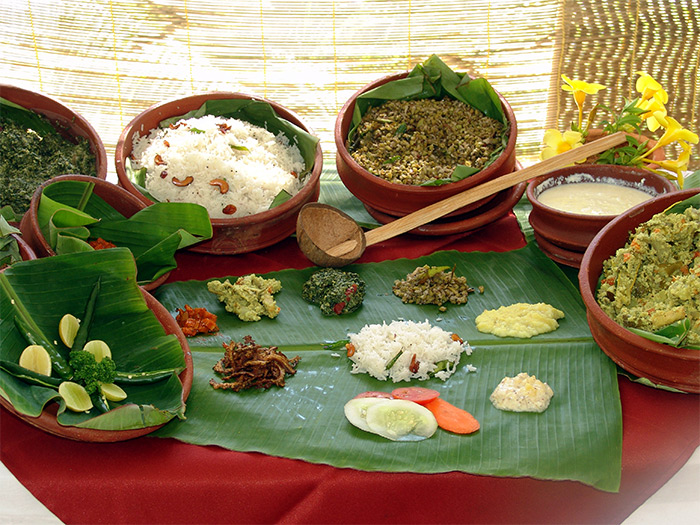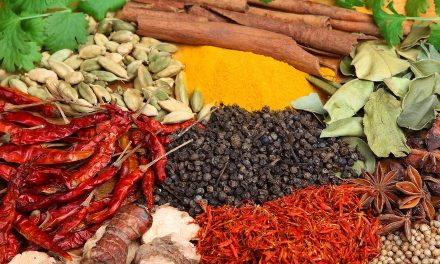The importance of eating in Ayurveda is not an unknown phenomenon by now. Food is the source of life, and therefore is one of the most significant factors in Ayurveda. Eating according to Ayurveda has multiple benefits, from things like weightloss and improvement of digestion to the extent of protecting and healing your body and mind diseases.
Ayurveda, often referred to as a medical science, offers you the simplest ways of taking care of your mind, body and soul, in a natural and practical manner. It is all about understanding your body and working according to its needs and requirements. This practice, which has been established more than 5,000 years ago, includes what you eat and its considerable effect on the human composition.
So, how does the relationship between Ayurveda and conscious eating actually work?
Ayurveda constitutes of the 3 Doshas, the 3 Gunas, the five elements, and taste. It is about the source of life, which comes from the mind, body and soul.
The three physical energies, commonly known as the doshas, consist of Vata, Pitta and Kapha. These three doshas reflect the body, mind and soul, and their constitution. It is according to these, that one has typical physical and mental characteristics. Doshas play a large role in conscious eating. Balance is a must when it comes to these three physical energies, as well the three mental energies, or Gunas – Sattva, Rajas, and Tamas. The Sattva stands for knowledge and purity, Rajas signifies action and passion, and Tamas means inertia and ignorance. These three energies describe the state of mind of a being. Just like one has a dominant dosha, one also has a dominant Guna, which reflects his or her mental state. It is therefore important to eat consciously to balance these three doshas and Gunas.
The five elements are earth, water, fire, air and ether. These are present in each body in a combination of two qualities. Different combinations of the five elements are present in each dosha. Each of these elements has particular traits. The fire, or Agni, for example, is hot and dry. It is these traits that form the characteristics of the three doshas, and have a significant effect on the body and mind. Conscious consumption of these elements is important for healing in Ayurveda.
Just as the combination and traits of the five elements determine the characteristics of the doshas, the six tastes hold the quality of the five elements. For example, the bitter taste includes air and ether, and therefore is cooling. Each of the six different tastes – sweet, sour, salty, bitter, astringent and pungent – hold positive and negative benefits, and should be consumed according to one’s dominant dosha. Since bitterness is cooling it is important to add this taste in the Ayurvedic diet of a Pitta-dominant person. Therefore, the conscious use of the six tastes plays a large role in Ayurvedic recipes. Taste is only second to water in its importance in Ayurveda.
The Ayurvedic diet includes various ingredients that you can substitute with your usual diet as a part of conscious eating. Conscious eating improves overall health and decreases risks of diseases. The Himalayan Rock Salt, for example, reduces blood pressure problems and is easier to digest compared to normal salt. It is also more mineral-packed, and calms the nervous system. The use of natural sweeteners such as jaggery is more beneficial, while refined white (and brown) sugar has lost all its main nutrients. Honey works great as well, promoting beautiful, flawless skin and good health. Fats like ghee, and oils that are solids when in room temperature (such as coconut oil) are preferable to other fats and oils. There are two kinds of fats and oils, the healthy ones and the unhealthy ones. The Ayurvedic diet chooses the first set. Asafoetida has several health benefits, and is known to be a remedy for many problems, such as cold, caugh, indigestion, and even menstrual irregularities. Ingredients like ghee and asafoetida are some of the most important ingredients in Ayurvedic recipes. Milk also plays a large role in the Ayurvedic diet, as it provides unique and rich vitamins and nutrients. It promotes growth, balanced emotions, and most importantly, helps in balancing the doshas.
The grouping of Ayurvedic ingredients and conscious eating is very important. Some facts are very well known, while others aren’t! For example, it is advised to not mix milk with sour tastes, because it is not good for your stomach. Conscious eating is very important in an Ayurvedic diet. Making the right cooking and eating choices is what makes the biggest difference. It is important to remember that Ayurveda and conscious eating is not a temporary health-fixing program, but a choice of lifestyle for long term health and productivity.











really it is a great website for indians to know what they are, where they are, what to do, from where they are and many more, thanks to this website holders and our divine old monks too
Dr.Rao PVLN,INDIA
verygood